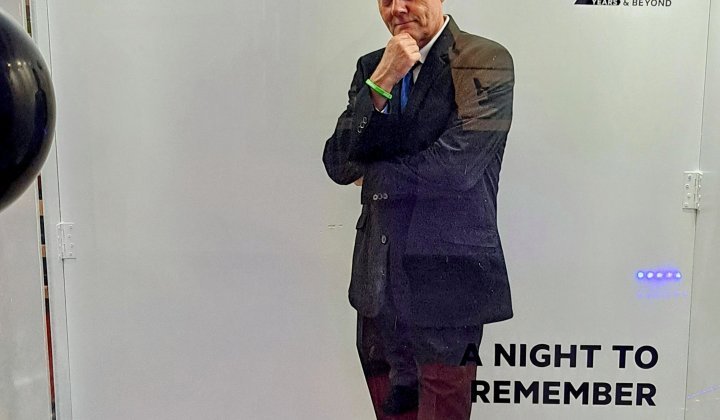Banks are not standing still. Insurance is not mired in its 17th-century origins. Card payments are no longer moulded in plastic. All these venerable old institutions are embracing new ways of thinking, and looking outside their ageing walls to remain relevant.
In recent months, insurance giant Hollard has teamed up with private investment group Yellowwoods to invest R20 million in Naked, described as an “insuretech” start-up; credit card giant Visa announced up to $100 000 in grants for the “next big thing” in payments in sub-Saharan Africa through its Everywhere Initiative; Rand Merchant Bank continues to invest in anything from robo advisors and chatbots to blockchain start-ups through its AlphaCode “club” for fintech start-ups.
When AlphaCode started out, says its head, Dominique Collett, “the thinking in the industry was that fintech would destroy the banks”.
“This hasn’t happened,” she says. “In fact, we are seeing a rise in partnerships between fintechs and financial institutions. Two aspects have driven this. Globally, we saw a pull-back of VC investment into fintech, and there’s been a dramatic increase in banks’ investment and partnerships into fintech. There is recognition that fintech businesses require a lot of money to scale and it takes time to build a brand that customers trust.
“In South Africa, we are seeing a lot more interest from banks and insurers to work with fintechs. A few years ago, the incumbents were more interested in building solutions themselves, but now they are opening their platforms to see how they can work together with fintechs.”
SnapScan
Peter Schlebusch, Standard Bank’s chief executive for personal and business banking, agrees wholeheartedly.
“We certainly see that we don’t have all the answers and that we can get fintechs to help us get new channels to customers,” he says. He points to the example of SnapScan, which has become almost synonymous with small businesses using QR codes to accept payments from mobile devices in South Africa.
“We didn’t come up with the idea of QR codes and mobile payments. We use it now to provide a more convenient payment method for consumers, but also for small business to accept card payments.”
...we are seeing a rise in partnerships between fintechs and financial institutions.
The result is evident at restaurants and flea markets, food trucks and clothes stores, and anything in between, where the SnapScan logo is displayed next to moneyboxes, tills and checkouts.
In the foyer of the new Standard Bank headquarters in Rosebank, Johannesburg, Schlebusch proudly points to a shoeshine stand positioned in a strategic spot. Even this shoe cleaner is taking card payments with SnapScan.
Schlebusch also highlights Standard Bank’s investments in Shift, a forex platform using a virtual card, which has generated more than R1 billion in purchases and remittances; and Phoenix, a crowdfunding platform for student fees.
“We’re helping students get to university through contributions from members of the public,” he says. “There are virtually no administrative costs, and it is funding students’ tertiary education.”
Sasfin
It’s not only the big banks that are looking to the start-ups. Specialist bank Sasfin has collaborated with a number of fintech start-ups in recent years. and is now investing directly. It has bought a successful payments platform, Pay@, and invested in a robo-advisor based in Silicon Valley.
Through its asset management and financial planning business, Sasfin Wealth, it also acquired a locally developed robo-advisor start-up called SIPP Investments. The founder, Erol Zeki, was brought on board as CEO of Sasfin Wealth, indicating the level of skills integration the deal allowed.
“Whether we build, acquire or integrate those products is of less importance to us,” says Michael Sassoon, CEO of Sasfin Holdings. “While we recognise that there might be elements of competition between us and some of the start-ups with which we work, what is most important to us is that our clients ultimately win.”
To this end, Sasfin is finalising an investment into digital business lender Payabill, and has integrated with Xero, the fastest-growing online accounting platform in the world. It has also built a digitally enabled Internet banking platform focused on SMEs, called B\\Yond, which integrates the core banking offering with payroll, invoicing and accounting capabilities.
“Only through effective innovation will we be able to grow our economy to its potential,” says Sassoon. “This innovation is best achieved through a powerful and enabled start-up ecosystem. This ecosystem is both exciting and tough in South Africa. Especially in the realm of fintech, we are seeing brilliant businesses and concepts both thrive and fail.
“We believe that the success rates can be increased significantly through more open-minded collaboration between banks and fintechs. Typically, banks like to own their clients and starts-up like to remain fiercely independent. These outdated mindsets inhibit innovation and ultimately hurt the client.”
The language of client-centric services is echoed over at Standard Bank. Like Sassoon, Schlebusch is passionate about what is possible for the customer.
“The most important thing we have to do is change ourselves to ensure we become a digital business. We have to eliminate all the friction of old, paper-based, people-intensive processes, and enable clients to do whatever they want to with us, whenever they want.
“In this context, I don’t see fintechs as a massive threat, but as an option to work together to improve our own business.”
Mega-platforms
The real threat, Schlebusch believes, is posed not by the small start-ups but by the giant e-commerce, cloud and social media players. He cites, in particular, Amazon, Google, Facebook, Alibaba and Tencent.
“When you’ve got over a billion users on your platform, with great data and great analysts, and all of them with payment platforms, those are the ones I worry about. When you see the likes of Amazon and Alibaba doing small business financing off the back of their sales data, we get very anxious. In our favour is that most of them would choose bigger markets with bigger profit pools before they choose Africa.”
Standard Bank has sent what it calls “immersion teams” to many of the hubs of the start-up world, ranging from Silicon Valley, Tel Aviv and London, to Singapore, Beijing and Shanghai, “to learn from these digital disruptors how we can disrupt ourselves”.
Schlebusch is brutally honest about the fundamental strategy behind this strategy: “We have no divine right to exist 20 years from now, and we have a burning platform to transform as fast as our customers are transforming.”
Geraldine Mitchley, senior director for digital solutions for Visa in sub-Saharan Africa, believes this very approach to start-ups is the key to the future of financial services on this continent.
We have no divine right to exist 20 years from now...
“With over a hundred million dollars invested over the past 10 years alone, the region’s fintech industry is on the brink of a transformative breakthrough,” she says. “We believe the time is ripe to bring together its brightest minds and work on the next big idea in payments technology.”
Sassoon, speaking for Sasfin, could be reading from the same mission statement: “We, as an open bank, want to provide an ecosystem to our clients which enables them to thrive by enabling them to acquire the best products and services, whether built by us, our competitors or new fintech start-ups.”
Arthur Goldstuck is founder of World Wide Worx and editor-in-chief of Gadget.co.za. Follow him on Twitter @art2gee and on YouTube.





